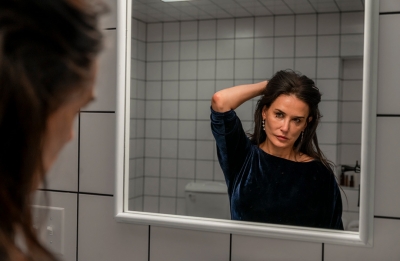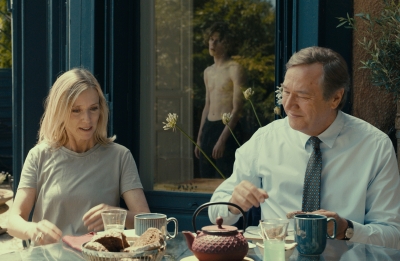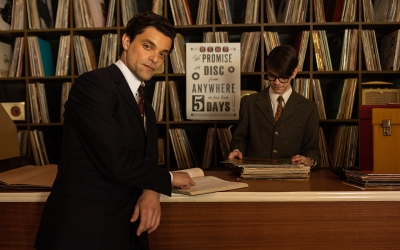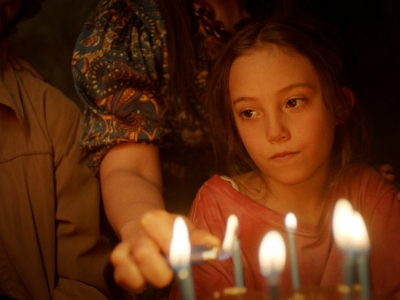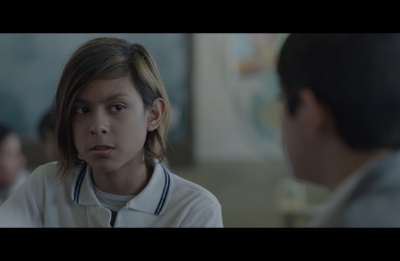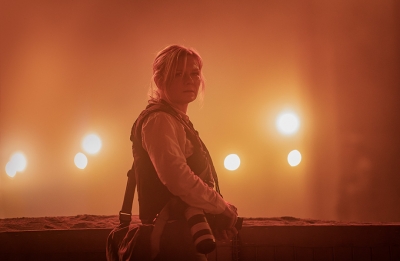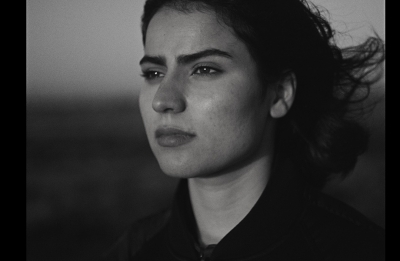Film
Here is news: the screen industry treats women like garbage. This insight, such as it is, powers writer-director Coralie Fargeat’s second feature film, The Substance, which is set in an unnamed city that is clearly a version of Los Angeles, at an unnamed time that bears resemblance to the 1980s. ... (read more)
Catherine Breillat’s Last Summer is a remake of a 2019 Danish film called Queen of Hearts, May el-Toukhy’s feature about a woman who embarks on a sexual relationship with her teenage stepson. This adaptation follows the original closely, down to specific scenes and lines of dialogue.
... (read more)Among the pivotal dates in the life of the Beatles, 27 August 1967 is one of the most significant. That’s when the band’s manager Brian Epstein died, aged thirty-two, in his London flat, the result of an accidental overdose of barbiturates and alcohol. His death precipitated the fracturing and ultimate fragmentation of the group. ... (read more)
Children occupy a special place at the Berlinale, which rolls around every year in Brandenburg during frosty February. Unlike many other top-tier competition film festivals, Berlin provides a whole strand, Generation – divided into ‘Kplus’ and ‘14plus’ – devoted to films about the world of die kinder. Though crafted by adults, these works have a certain sympathy with the world view of those much younger. ... (read more)
How to start writing about two films based on polarities – life and death, past and future, childhood and adulthood, loss and hope – that grip your stomach, squeeze your heart, and make you both weep and laugh? I’ll start from a quote by Albert Einstein: ‘The only thing that interferes with my learning is my education.’ ... (read more)
Anyone who has lived in a sharehouse might recognise the hectic energy that defines Goran Stolevski’s third feature, Housekeeping for Beginners. Cinematographer Naum Doksevski’s handheld camera hovers so close to the actors that it seems almost to get beneath their skin; the film opens on a lounge room singalong, loud and unabashed, and barely lets up from there. ... (read more)
Shoot first, ask questions later. It’s a phrase that applies equally to the combat soldiers and the photojournalists at the heart of Civil War. From the opening scene to the provocative closing credits, Alex Garland’s new film follows a team of old-school correspondents who document a near-future dystopian United States at war with itself. They constantly insert themselves into the middle of skirmishes for the shot. A dogmatic devotion to capturing the moment is what drives both the plot and its characters. They are individuals with no backstory, married to the profession even as it destroys them psychologically. ... (read more)
Like each of the Iranian-British director Babak Jalali’s films to date, Fremont deals with the felt effects of geographical dislocation. Specifically, it follows the story of Donya (Anaita Wali Zada), an Afghan refugee and former translator for the US military. Settling in Fremont, California, she lives alone and works at a fortune cookie factory, trying to adapt to new surroundings while working through her difficult past. ... (read more)
The game of tennis is simple: hit the ball over the net and make sure it lands between the straight white lines. It’s simpler than life, though tennis, like all other sports, is designed to act as its mirror – spectator sports are enticing because they lay bare the emotions that the complications of real life often obfuscate. Tennis is weaponised in this same way in Luca Guadagnino’s Challengers, a psychosexual sports drama that marries the mercuriality of love and lust with the capriciousness of a sport oft won by millimetres. ... (read more)
Something illusory lurks in the films of Ryûsuke Hamaguchi. Characters encounter each other under false and mistaken pretences; layers of performance mount and interact; memory intrudes and falters. In the Japanese director’s latest, an environmental fable that won the Grand Jury Prize at the 2023 Venice Film Festival, the ecosystem of a small village is threatened by a Tokyo business’s plan to establish a ‘glamping’ site in the region. ... (read more)


